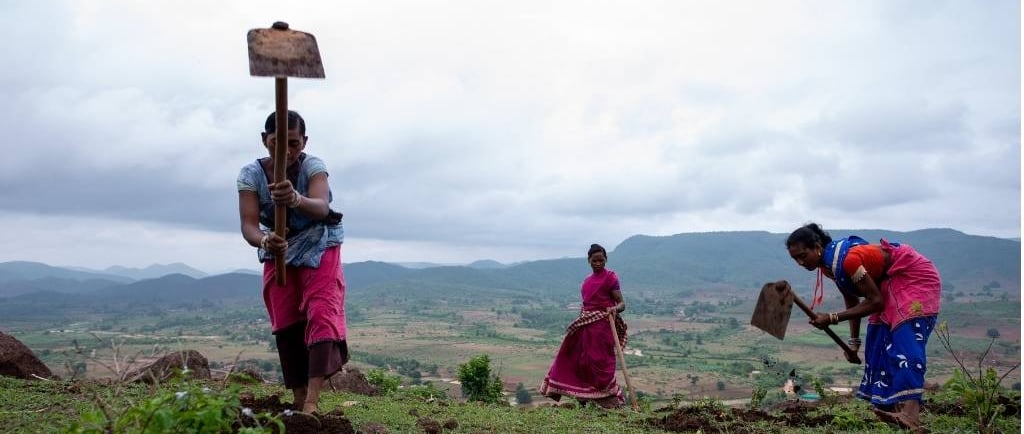Enhancing MGNREGA to Safeguard Rural Workers from Climate Impacts


The Mahatma Gandhi National Rural Employment Guarantee Act (MGNREGA) is a pivotal social security measure aimed at providing at least 100 days of wage employment per financial year to unskilled workers in rural areas. Designed to enhance livelihood security, it has been a lifeline for millions of rural families, especially during crises like the COVID-19 pandemic, when many sectors shut down and unemployment soared. The demand for work under MGNREGA increased dramatically during this period, but challenges such as delayed wage payments due to budget constraints hindered its effectiveness.
However, the rising climate crisis adds another layer of complexity to the lives of these rural workers. Extreme weather conditions, exacerbated by climate change, disproportionately affect informal workers who often labor under open skies in harsh conditions. There is a pressing need to adapt MGNREGA to better protect workers from these environmental challenges.
Climate Crisis and Its Impact on Workers
India faces a growing threat from climate change, with increasing incidents of severe heatwaves, droughts, floods, and landslides. Workers under MGNREGA, who are often engaged in outdoor labor, are particularly vulnerable to these extreme weather events. Studies predict that India could lose 19% of its income by 2050 due to the impact of climate change, with the brunt borne by unskilled workers who rely on physically demanding jobs.
The health risks for these workers are significant. Exposure to extreme heat increases the likelihood of heatstroke and heat-related illnesses, while working long hours in the sun raises the risk of skin cancer. Additionally, constant exposure to such conditions can weaken immunity, leading to a host of other health issues. Below is an analysis of how specific seasons impact MGNREGA workers:
Summer: The rising temperatures make outdoor work perilous, especially for unskilled workers in the informal sector. While MGNREGA provides employment security, it cannot mitigate the harmful effects of extreme heat on workers' health.
Monsoon: The demand for work under MGNREGA tends to decrease during the rainy season, particularly in flood-prone rural areas. However, ensuring employment during this period is critical to support vulnerable families.
Winter: In some regions, agricultural activities decline during winter. MGNREGA can be used to engage workers in alternative employment, such as infrastructure projects like road and bridge construction, providing much-needed income during the off-season.
The Way Forward
As extreme weather events are expected to intensify with time, MGNREGA needs to evolve to not only provide financial support but also create favorable working conditions for rural workers. Some key recommendations include:
Incorporate Skilled Workers: Expanding MGNREGA to include skilled laborers for rural infrastructure projects can increase productivity while reducing rural-to-urban migration. Payments should be made locally, benefiting the entire community.
Establish Skill Development Centers: Creating centers for training unskilled workers in rural areas would enhance their employability. These centers could offer stipends during training, providing financial stability to families while they acquire new skills.
Introduce Medical Insurance: MGNREGA should include medical insurance coverage for workers, protecting families from financial distress in case of injury or death during work. This would ensure better social security for the most vulnerable segments of society.
Remove the 100-Day Work Cap: The current cap of 100 workdays per year may not be sufficient given the rising population and increasing demand for jobs. An alternative approach could involve providing longer-term employment for those who complete 50 consecutive days of work in a specific sector, with opportunities to train and mentor others.
Implement Income-Based Eligibility: Introducing an income threshold for MGNREGA participation could ensure that the scheme is targeted at those who need it most. As workers’ incomes rise and they become skilled, they would graduate from the program, freeing up resources for others.
Conclusion
While we cannot control the weather, we can create more favorable conditions for workers, particularly those in the informal sector who bear the brunt of climate change. By enhancing MGNREGA to address these climate-related challenges, we can protect the health and livelihoods of rural workers, ensuring that they are not left vulnerable to the growing threats posed by extreme weather. The proposed changes aim to adapt the scheme to evolving needs, ultimately helping MGNREGA fulfill its goal of providing both employment and security to India’s rural workforce
